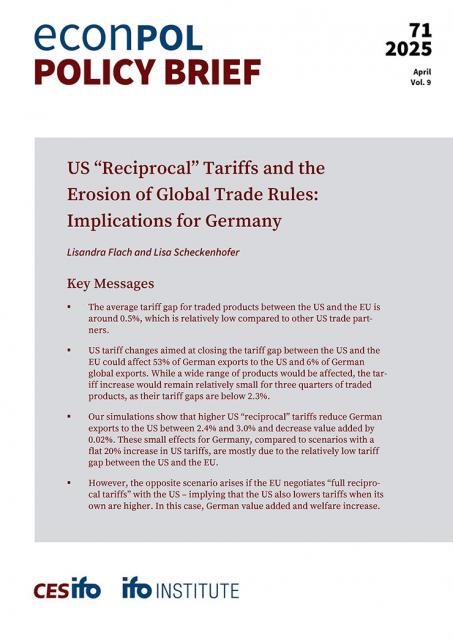News Archive

EconPol Newsletter 2022/06
|
Newsletter
| News
The latest issue of the EconPol Newsletter has just been published featuring the new Forum on the question “How to Deal with the European Energy Crisis?”, a new Policy Brief on “Intentions to Stay and Employment Prospects of Refugees from Ukraine” and our newly revised section “EconPol Opinion” with two contributions by Clemens Fuest.

Working from Home Around the World
|
EconPol Forum
| News
The Covid-19 pandemic triggered a huge, sudden uptake in work from home, as individuals and organizations responded to contagion fears and government restrictions on commercial and social activities. Over time, it has become evident that the big shift to work from home will endure after the pandemic ends. A new global survey of working arrangements across 27 countries presented in the EconPol Forum shows that employers plan an average of 0.7 work-from-home days per week after the pandemic ends.

The Social Integration of Syrian Refugees in Germany
|
EconPol Forum
| News
How successful have efforts been to socially integrate Syrian migrants in Germany? What factors influence social integration? Together with researchers from Harvard and Meta, Theresa Kuchler and Johannes Stroebel address these questions in a new research paper working with de-identified data from Facebook. They find that Syrians in Germany generally have low levels of social integration compared to German natives, measured

The Revenue Effect of a Global Effective Minimum Tax
|
EconPol Forum
| News
In the new EconPol Forum 6/2022 Clemens Fuest and Florian Neumeier estimate the fiscal effect of a global effective minimum tax for Germany, the EU27, and the world. Their results indicate that Germany and – on aggregate – the EU27 would benefit fiscally from a global effective minimum tax. However, the size of the additional tax revenue depends on the design of the carve-out rule and the extent of behavioral adjustments on the side of multinational companies and low-tax countries.

How to Deal with the European Energy Crisis?
|
EconPol Forum
| News
The current energy crisis in Europe is bringing about profound changes that can accelerate the transition to a more sustainable and secure energy system. Yet, it is a supply shock of unprecedented scale and complexity, most noticeable in the markets for natural gas, coal, and electricity. Winter promises to be tough - especially for low-income households that use gas for heating and for small and medium-sized industrial companies.
